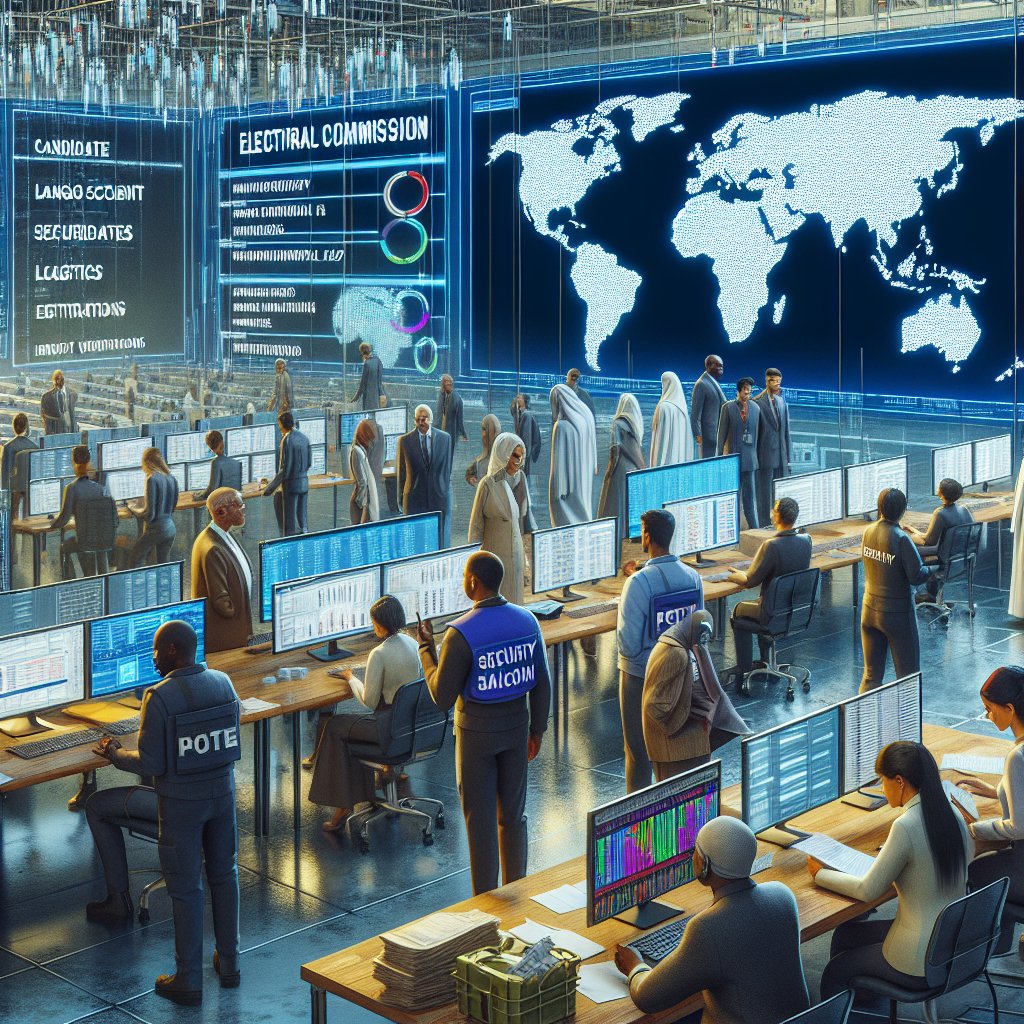Image created by AI
South Africa’s IEC Braces for Engaging Elections with R2.3 Billion Budget Amid Electoral Act Changes
Amidst a deepening political landscape and the ongoing administrative ballet, the Electoral Commission of South Africa (IEC) finds itself in the throes of preparation for what promises to be a multi-faceted election. With an injection of R2.3 billion from the National Treasury, the IEC is tasked with navigating both budgetary constraints and the complexities presented by amendments to the Electoral Act.
Speaking to Parliament, IEC Chief Financial Officer Andile Dawn Mbatha detailed the financial landscapes of an election encumbered by legislative changes. Collateral to delivering free and fair elections is the need for an expanded human resource base - more individuals will be required to manage and count an anticipated increase in ballot paper length. This is one of the tangible outcomes of the Electoral Act amendments, which aim to level the playing field by allowing more independent candidates and parties into the fray.
The presence of over 352 political parties contesting the elections is a testament to South Africa's thriving democratic climate. However, this plethora of contestants necessitates the printing of additional ballot papers, procurement of more ballot boxes, and a higher quantity of security materials – certainly an unfriendly proposition within the purview of governmental austerity. A R30 million reduction in funding compounds the financial hurdles the IEC must surmount.
The IEC's Deputy Chief Electoral Officer, Masego Sheburi, underscored the importance of adherence to election timelines by political entities. With deadlines looming - lists of parliamentary and provincial legislature candidates are due by March 8 - parties were advised of a rigorous validation process to identify and resolve overlaps in candidate representation across party lines, an endeavor set to culminate on March 26 and 27.
The election narrative is further riveted by the criteria outlining candidate eligibility. Under spotlight is the preclusion of candidates convicted and sentenced to over a year's imprisonment without the option of a fine, a stricture that notably disqualifies former President Jacob Zuma, now at the helm of the uMkhonto weSizwe (MK) Party.
Despite the financial and regulatory trials, the IEC remains resolute, with collective eyes centered on ensuring that come election day, the democratic pulse of South Africa vibrates through the handling and counting of each and every ballot. This meticulous dedication to process and fairness ensures that the voice of the South African electorate will echo with integrity within Parliament's hallowed walls.










